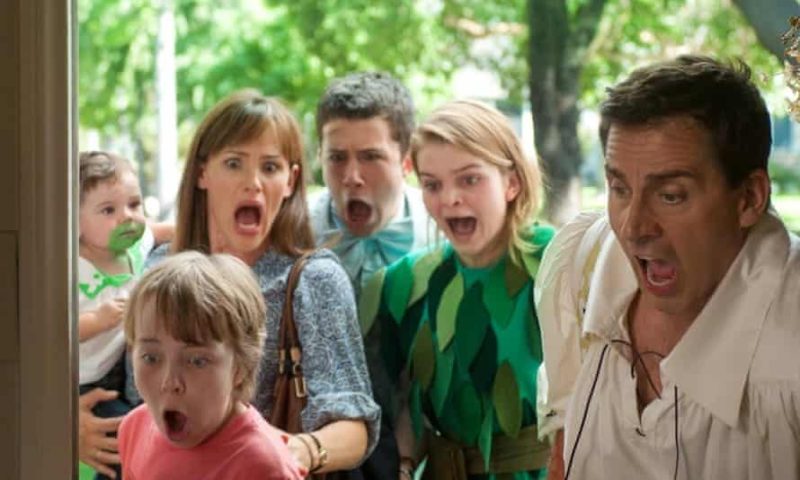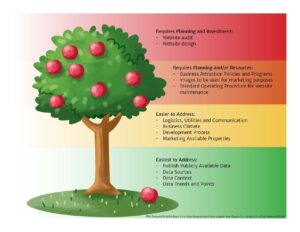Source: Alexander and the Terrible, Horrible, No Good, Very Bad Day: short on drama but lots of fun – first look review by The Guardian.
In the movie “Alexander and the Terrible, Horrible, No Good, Very Bad Day,” Alexander Cooper’s family goes to bed anticipating a set of career-defining and socially significant events to occur without a hitch the next day. Unfortunately, a series of circumstances unfold that test their aspirations and they discover what they truly value as a family. It’s one of my favorite movies, perhaps because it is too relatable and there is something twisted inside me that finds the events that unfold hilarious. It also conveys how a family’s core values permeate their decision-making and SMARTER goal-setting process in the midst of crisis. As these foundational values are tested, the audience is held in suspense to see how the Cooper family will navigate each crisis moment.
Families are nano-communities that transcend jurisdictional lines and election cycles. Their codes of conduct, vision for the future, and crisis management are taught informally, yet I still believe communities can formalize these lessons. For communities that have identified their values and goals, a strategic plan can guide its leadership to develop SMARTER goals, objectives and tasks that are adaptable to changing circumstances such as a global financial crisis, global pandemic, natural disasters, etc.
Set SMARTER Goals
The foundation, however, must clearly articulate a set of SMARTER goals to achieve the mission of the community. There are many definitions of SMART goals, but some authors have expanded it to include evaluation and review. SMARTER goals are:
- Specific (simple, sensible, significant).
- Measurable (meaningful, motivating).
- Achievable (agreed, attainable).
- Relevant (reasonable, realistic and resourced, results-based).
- Time bound (time-based, time limited, time/cost limited, timely, time-sensitive)
- Evaluated
- Reviewed[1]
Smarter Action Planning and Implementation
In the season five of the hit television show FRIENDS, the iconic episode of Ross Geller yelling, “Pivot!” to his two friends trying to help him move a couch up the stair well. It goes terribly wrong. Part of what makes it so funny, is that it is so relatable. We have all experienced exasperated friends and family helping us navigate tight corners and steep angles with heavy furniture. Ross even had a plan of how he thought it would work. But the only promise in a plan is to work towards its goals. It is not a set of guaranteed results. During a crisis, SMARTER goals may need to be reprioritized, projects put on hold, and resources reallocated for the community to still fulfill its mission.
During the implementation of the plan, circumstances and new information forces communities to pivot. Community leaders should be able to articulate this mission and why the change in priorities fulfills that mission. They must also be willing to sound like a broken record repeating the mission like a mantra until that mission becomes a part of the community culture. When introducing new projects, smarter professionals ask the following question: how does this help us reach our strategic goals?
Monitor and Adjust
Also, not all bad experiences are bad if communities allow them to inform future endeavors. Just like smashed fingers and toes have informed furniture movers to measure hallway widths and angles, communities can use past experiences to gauge their capacity to take on a new project. For example, a community was considering creating a business improvement district (BID). The implementation failed before – twice. If it failed a third time it would have felt like “game over.” The steering committee met for months to identify what went wrong during the previous attempts. Finally, they developed a plan and the BID was successfully created.
The adjustments don’t stop at implementation though. Communities should be monitoring and adjusting their programs and the allocation of their resources based on a set of performance metrics. Consider integrating these performance metrics into performance reviews. For example, if the community development department is responsible for supporting events downtown, identify how best to accomplish that goal. For example, does the liquor licensing process or requirements need review? Consider providing a marketing budget and allocating time for event organization, etc. According to Paycor, “This is how you ensure accountability. Clearly outline the responsibilities of each business unit and team and make sure they have the competencies and resources required to achieve their goals. Evaluate employees’ actions and behavior according to these objectives.” [2]
Conclusion
Creating SMARTER goals provides communities with the flexibility to pivot during a crisis through consistent evaluation and review. Communities should focus on how working on these goals is furthering their mission followed by the results of that effort. Then, properly size these goals based on organizational capacity. Finally, properly resource and review goals and tasks at a predetermined time to ensure accountability.
[1] The Mind Tools Content Team. (2021). Smart goals: – how to make your goals achievable. https://www.mindtools.com/pages/article/smart-goals.htm.
[2] Set objectives in your performance management process. Paycor. (2021). https://www.paycor.com/resource-center/articles/how-to-set-and-cascade-objectives-in-your-performance-management-process/.






